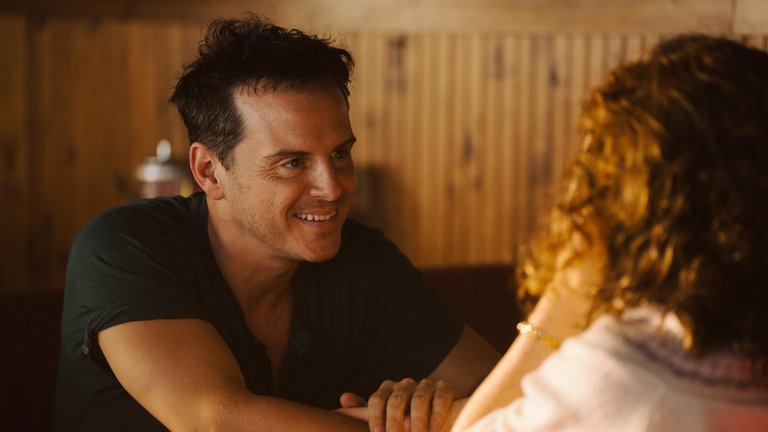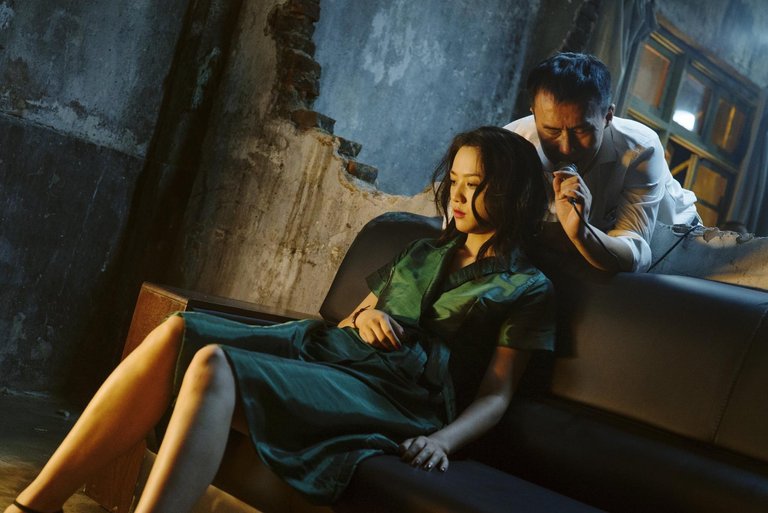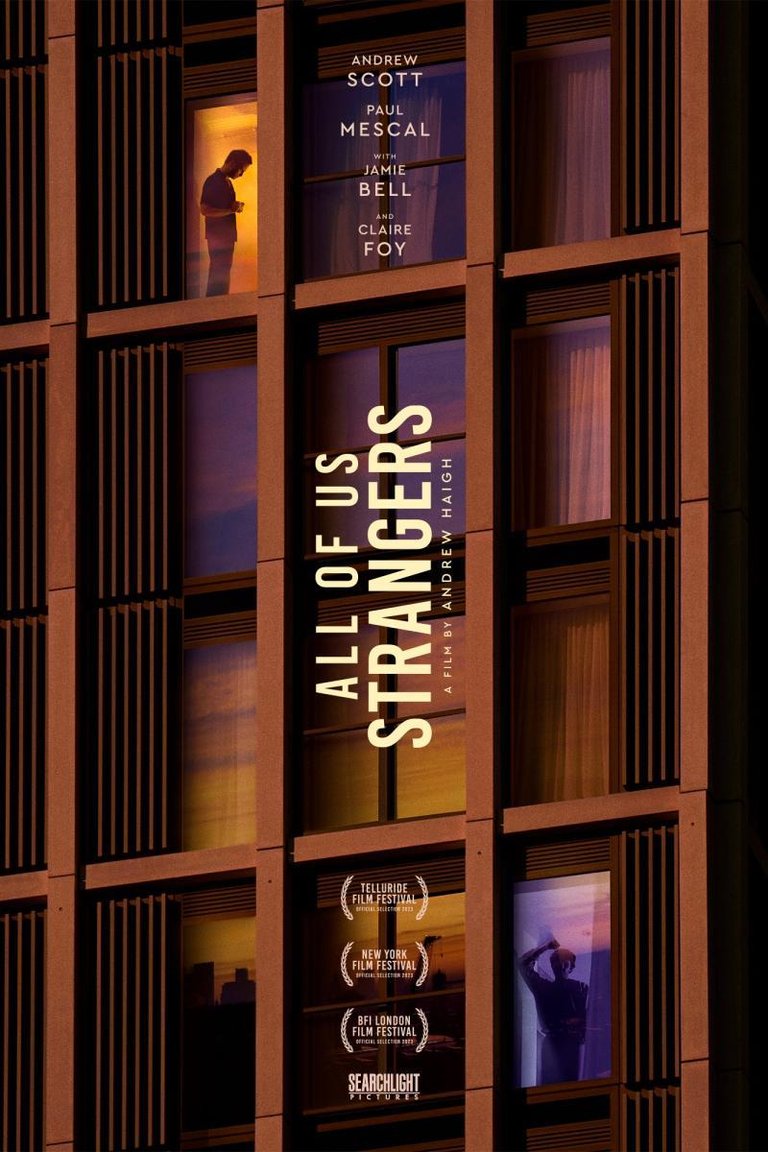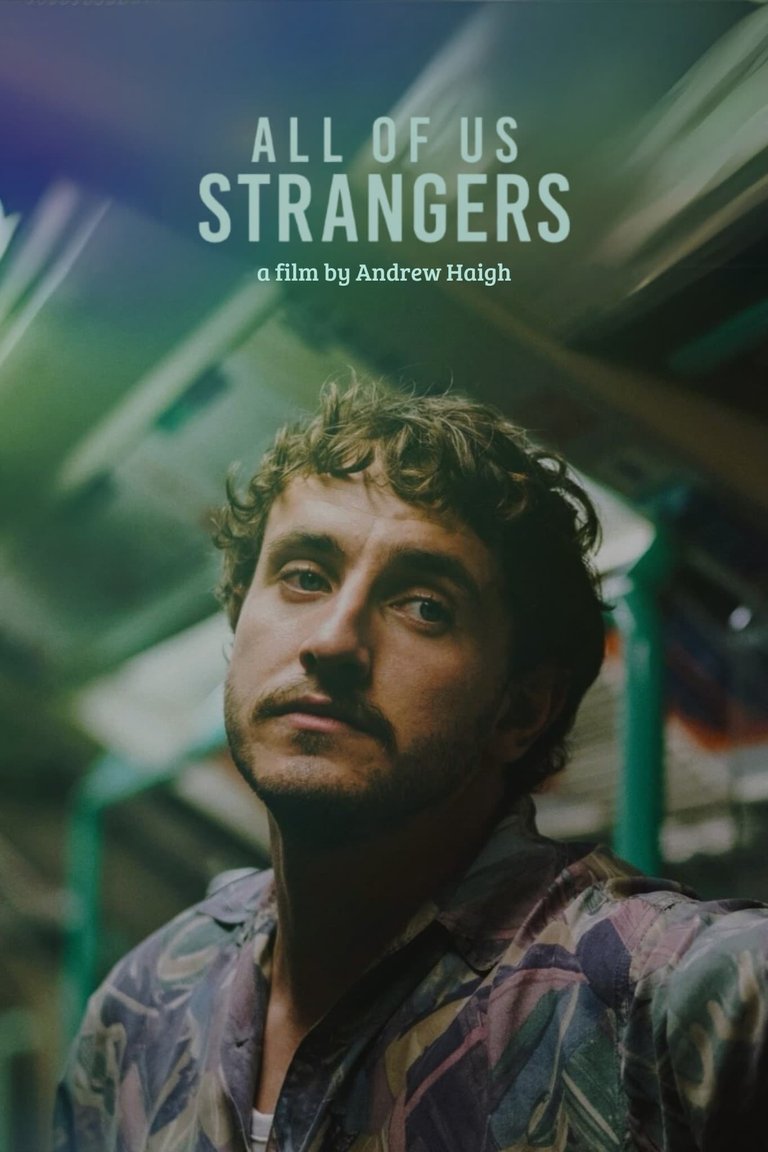All of Us Strangers (2023): a devastating psychological drama | un devastador drama psicológico

Basada en una novela de Taichi Yamada
The same day I went to the cinema to see One Life and Past Lives (the latter for the third time), I also saw All of Us Strangers which I barely knew was LGBTQ+ themed and that it starred two very good actors: Andrew Scott, the unusual priest from Fleabag, and Paul Mescal, the star of the series Normal People and protagonist of one of my favorite films of recent years, Aftersun.
El mismo día que fui al cine a ver One Life y Past Lives (esta última por tercera vez), vi también All of Us Strangers de la que apenas sabía que era de temática LGBTQ+ y que estaba protagonizada por dos muy buenos actores: Andrew Scott, el poco común sacerdote de Fleabag, y Paul Mescal, la estrella de la serie Normal People y protagonista de una de mis películas favoritas de los últimos años, Aftersun.
Thus, with the guarantee of good performances, I entered the movie theater to leave two hours later with the prognosis confirmed, but somewhat devastated by the beautiful sadness of the story. Adam (Scott) is a screenwriter who lives in a nearly empty building in London. He's currently working on a project in which he wants to talk about his parents, who died in a car accident thirty years ago when little Adam was barely twelve years old. In order to write, Adam looks through some old photographs, reviews memories, and goes for a walk to clear his mind before returning to his apartment. One night he receives a visit from Harry (Mescal), who confesses that he has seen him before and since they are practically the only inhabitants of that brand new building, Harry wants to meet Adam and go to his apartment, but he prevents him with some suddenness. Despite being very different (Adam more reserved, Harry more spontaneous) both are lonely, sad beings and in need of affection and understanding. At the same time, with some guilt and remorse, and also because he feels very alone, Adam invites Harry to his apartment and after confirming that they are both homosexuals, they begin a romantic relationship that will lead them to share moments full of tenderness, adventure, but also a lot of pain.
Así, con garantía de buenas actuaciones, entré a la sala de cine para salir dos horas más tarde con el pronóstico confirmado, pero algo devastado por la bella tristeza de la historia. Adam (Scott) es un guionista que vive en un edificio casi vacío en Londres. Actualmente está trabajando en un proyecto en el que quiere hablar de sus padres, fallecidos en un accidente automovilístico treinta años atrás cuando el pequeño Adam apenas tenía doce años. Para poder escribir, Adam revisa algunas fotografías viejas, repasa recuerdos y sale a caminar para despejar la mente antes de volver a su departamento. Una noche recibe la visita de Harry (Mescal), quien le confiesa haberlo visto antes y dado que son prácticamente los únicos habitantes de ese recién estrenado edificio, Harry quiere conocer a Adam y pasar a su departamento, pero éste se lo impide con algo de brusquedad. A pesar de ser muy diferentes (Adam más reservado, Harry más espontáneo) ambos son seres solitarios, tristes y necesitados de cariño y comprensión. Al tiempo, con algo de culpa y remordimiento, y también porque se siente muy solo, Adam invita a Harry a su departamento y tras corroborar que ambos son homosexuales inician una relación romántica que los llevará a compartir momentos cargados de ternura, de aventura, pero también de mucho dolor.

The relationship between Adam and Harry is very beautiful and has an important weight in the story, but All of Us Strangers is not just another romantic film with an LGBTQ+ theme because the center of the film, which in my opinion is the most important thing in the story doesn't have to do with Adam and Harry, but with Adam's parents, who are still very present in his life, as present as if they had never left.
La relación entre Adam y Harry es muy bonita y tiene un peso importante en la historia, pero All of Us Strangers no es una película romántica más con temática LGBTQ+ porque el centro del film, lo que en mi opinión es lo más importante de la historia, no tiene que ver con Adam y Harry, sino con los padres de Adam, quienes siguen estando muy presentes en su vida, tan presentes como si nunca se hubieran ido.
What begins as a psychological drama turns into fantasy when, to revisit some memories about his parents, Adam takes the train to his hometown and arrives at the house where he grew up. The facade is the same, he recognizes the door, the windows, for him it is as if time had not passed, a feeling that is reinforced when he sees who opens the door for him: they are his parents (played by Jamie Bell and Claire Foy). Not his aging parents, not the memory of his parents, not two people who look like his parents. They are his parents, just as they were just before they died in that terrible accident. Adam recognizes them and is shocked, of course, but the most surprising thing is that his parents recognize him. Adam is now older than his parents were when they died, but they know he's Adam and somehow they were expecting him, so they pass him off as if it was a weekend visit from a son who lives in another city and not that of someone who visits them from the other side of life. There's no need to look for an explanation for this narrative resource, there's no need to think about whether or not it makes sense because it's not the important thing. What is relevant about this fact is that it allows the story to expand backwards in the past, outwards beyond Adam and inwards, towards the depths of the feelings that Adam has had saved for so long.
Lo que comienza como un drama psicológico se torna en fantasía cuando, para repasar algunos recuerdos sobre sus padres, Adam toma el tren hacia su ciudad natal y llega a la casa en la que creció. La fachada está igual, reconoce la puerta, las ventanas, para él es como si el tiempo no hubiera pasado, una sensación que se refuerza cuando ve quién le abre la puerta: son sus padres (interpretados por Jamie Bell y Claire Foy). No sus padres envejecidos, no el recuerdo de sus padres, no dos personas que se parecen a sus padres. Son sus padres, tal cual como eran justo antes de morir en aquel terrible accidente. Adam los reconoce y se conmociona, por supuesto, pero lo más sorprendente es que sus padres lo reconocen a él. Adam ahora es mayor de lo que eran sus padres al morir, pero ellos saben que él es Adam y de alguna forma lo estaban esperando, así que lo hacen pasar, como si fuera una visita de fin de semana de un hijo que vive en otra ciudad y no la de alguien que los visita desde el otro lado de la vida. No hay que buscarle explicación a este recurso narrativo, no hay que pensar si tiene o no tiene sentido porque no es lo importante. Lo relevante de este hecho es que permite que la historia se expanda hacia atrás en el pasado, hacia afuera más allá de Adam y hacia adentro, hacia lo más profundo de los sentimientos que Adam ha tenido guardados durante tantísimo tiempo.

Let's think that Adam lost his parents when he was still very young, when he didn't even know who he would be and above all, when homosexuality was not as accepted as it is today, how different would his life have been if his parents had not died? And now that he has found them he has the opportunity to ask them the questions that have eaten away at him throughout his life and tell them and confess everything he has felt, thought and kept quiet for so long.
Pensemos que Adam perdió a sus padres cuando aún era muy niño, cuando ni siquiera sabía quién sería y sobre todo, cuando la homosexualidad no era tan aceptada como hoy en día, ¿cuán diferente habría sido su vida si sus padres no hubieran muerto? Y ahora que los ha encontrado tiene la oportunidad de hacerles las preguntas que lo han carcomido durante toda su vida y contarles y confesarles todo lo que ha sentido, pensado y callado durante tanto tiempo.
Andrew Scott's performance is wonderful (Mescal's too, but he appears less in the film), very deep and emotional. Adam is a man who has a lot of sadness, a lot of guilt, who carries within him a weight that oppresses him and has made him isolate himself from the world and at all times Scott convinces us of the reality of these feelings. The script, based on the novel Strangers by Taichi Yamada (which was already made into a film in 1988 with the title The Discarnates), is a story full of melancholy, tears, but also tender and moving moments. The impossible relationship of Adam as an adult with his parents reminded me of Petite Maman by Céline Sciamma, another story that, using fantasy, reunites a girl with her mother (when she was a child) in a way that would be impossible in real life. Generational gaps, the change of times, homosexuality of course, the difficulty of fitting into a world that condemns you for being different, the search for one's own identity, depression, social isolation, filial, parental love, family, There are many themes that All of Us Strangers deals with, a film that marvels us with its narrative, its performances, its resources and its depth, but that devastates us with its loneliness and sadness, has any of you seen it yet? what did you think? I read you in the comments.
La interpretación de Andrew Scott es maravillosa (la de Mescal también, pero aparece menos en la película) muy profunda y emotiva. Adam es un hombre que tiene mucha tristeza, mucha culpa, que lleva dentro de sí un peso que lo oprime y que lo ha hecho aislarse del mundo y en todo momento Scott nos convence de la realidad de estos sentimientos. El guión, basado en la novela Strangers de Taichi Yamada (que ya fue llevada al cine en 1988 con el título de The Discarnates), es una historia llena de melancolía, de lágrimas, pero también de momentos tiernos y conmovedores. La relación imposible de Adam ya adulto con sus padres me hizo recordar Petite Maman de Céline Sciamma, otra historia que valiéndose de la fantasía reúne a una niña con su madre (cuando era niña) de una forma que sería imposible en la vida real. Las brechas generacionales, el cambio de los tiempos, la homosexualidad por supuesto, lo difícil de encajar en un mundo que te condena por ser diferente, la búsqueda de la propiad identidad, depresión, aislamiento social, el amor filial, parental, la familia, son muchos los temas que trata All of Us Strangers, película que nos maravilla con su narrativa, sus actuaciones, sus recursos y su profundidad, pero que nos devasta con su soledad y su tristeza, ¿alguno de ustedes ya la ha visto? ¿qué les pareció? Los leo en los comentarios.
Reseñado por @cristiancaicedo
Other posts that may interest you | Otros posts que pueden interesarte:
  |
|---|




Excelente reseña crítica de este, sin duda, llamativo filme, como nos lo haces ver en tu comentario de varios de sus aspectos resaltantes. Gracias por darlo a conocer. Saludos, @cristiancaicedo.
Saludos y muchas gracias por la valoración y el comentario.
Increíble reseña! Desconocía totalmente está película, pero no han dado muchas ganas de verla. Me pareció bien como se toca el tema relacionado a los padres de Adam, me alegra que se siga explorando tonos más serios en las producciones LGBTQ+.
Eso me gustó. Por un lado, a veces me incomoda que muchas historias LGBTQ+ sean trágicas (but that's life, I guess) pero me gusta cuando abordan cualquier relación romántica desde una perspectiva más profunda y emotiva, como en esta película. Saludos.
Me parece una historia para llorar y solo viendo las caras de las fotografías, siento ese frío dolor que llevan los personajes, supongo que deja un bonito mensaje para reflexionar
Deja varios mensajes, no sé si bonitos, pero sí creo que necesarios. Saludos y gracias por leerme.